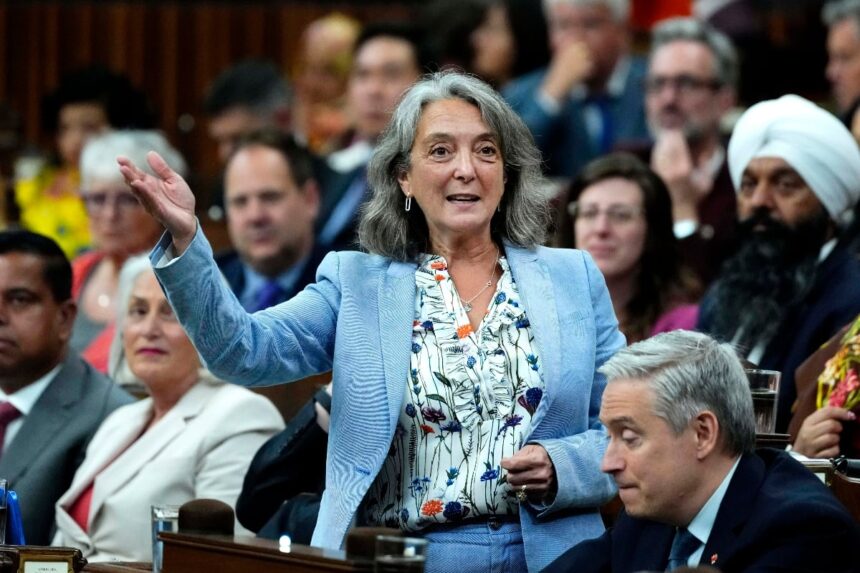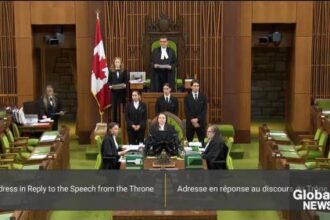In a significant shift that could accelerate Canada’s transition to clean transportation, Environment Minister Steven Guilbeault confirmed yesterday that the federal government is preparing to reinstate electric vehicle rebates after the popular program reached its funding limit earlier this year. The announcement comes amid mounting pressure from environmental groups and consumers who have seen EV purchases slow since the incentives disappeared in April.
“Canadians have clearly demonstrated their enthusiasm for electric vehicles when proper incentives are in place,” Guilbeault stated during a press conference in Ottawa. “We recognize that affordability remains a critical barrier to adoption, and we’re committed to addressing this gap in the coming weeks.”
The previous rebate program, which offered up to $5,000 for eligible battery-electric and long-range plug-in hybrid vehicles, exhausted its allocated funding three months earlier than anticipated due to surging demand. Data from Transport Canada shows that EV sales dropped approximately 23% in the two months following the program’s suspension, highlighting the significant impact of financial incentives on consumer behavior.
Industry analysts suggest the rebate’s return could not be more timely. “The market was just beginning to reach a tipping point when the incentives vanished,” explains Dr. Melissa Chen, sustainable transportation researcher at the University of Toronto. “Without these rebates, we’ve seen many potential buyers delay their purchase decisions, which threatens to derail our emissions reduction targets for the transportation sector.”
The revamped program is expected to include several modifications designed to stretch funding further while maintaining impact. Sources within the ministry indicate that rebate amounts may be adjusted based on vehicle price thresholds and battery capacity, potentially offering larger incentives for more affordable models to make EVs accessible to middle-income Canadians.
Provincial reactions to the announcement have been mixed. Quebec and British Columbia, which offer their own supplementary EV incentives, welcomed the federal government’s decision. “This creates a powerful stackable incentive that could bring many electric vehicles below price parity with conventional models,” noted Quebec’s Minister of Environment, Claude Beaudoin.
Meanwhile, industry stakeholders are cautiously optimistic about the program’s revival. “Consistency in policy is crucial for both consumers and manufacturers,” said Jennifer Morris, spokesperson for the Canadian Vehicle Manufacturers’ Association. “The stop-start nature of incentive programs creates market uncertainty that complicates production planning and inventory management.”
The reinstated rebates will support Canada’s broader climate objectives, including the federal mandate requiring 100% of new passenger vehicles sold to be zero-emission by 2035. According to government projections, transportation accounts for approximately 25% of Canada’s total greenhouse gas emissions, making it a critical sector for decarbonization efforts.
For prospective EV buyers, the announcement offers a reason to pause current purchase plans. “We’re advising clients to wait for the official program details before finalizing any decisions,” explained Thomas Farrell, senior consultant at GreenDrive Advisory. “The difference could mean thousands of dollars in savings, particularly for families considering mid-range electric SUVs and crossovers.”
Environmental advocates, while supportive, emphasize that rebates represent just one component of a comprehensive EV strategy. “We need concurrent investments in charging infrastructure, particularly in rural and northern communities,” said Emma Williams, director of Climate Action Network Canada. “Rebates address the upfront cost barrier, but range anxiety and charging convenience remain significant concerns for many potential adopters.”
The government has not yet disclosed the total funding allocation for the reinstated program, though analysts expect it will exceed the previous $300 million commitment to reflect growing market demand and inflation-adjusted vehicle prices.
As Canadians await further details expected to be released next month, one question remains central to the national conversation on transportation: Will these renewed incentives finally push electric vehicles into the mainstream of Canadian car culture, or will broader economic concerns continue to keep zero-emission vehicles in the niche market category?


















